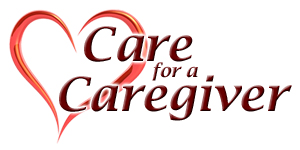Have you ever read the book, “The 5 Love Languages” by Gary Chapman? It’s pretty cool. I read it years ago. Chapman categorizes love languages into: words of affirmation, quality time, and acts of loving service, physical touch and receiving gifts. The other day, I took the online love language profile to see if my love language has changed over the years. Nope, it’s still the same. Words of affirmation are my primary love language, followed by a tie between quality time and physical touch, then acts of loving service. Receiving gifts didn’t even rate a 1 on a scale of 12 points! All my husband needs to do is listen to my heart and tell me how he loves me while we walk on the beach holding hands- and when we get home, clean the house! Forget the gifts, they don’t rate for my love language!
Words are my primary love language; I have come to appreciate their power. After my daughter Johanna was born and diagnosed, my greatest concern was that she would not be able to communicate with me. The few times she lost her ability to speak because of bleeds in her brain and seizures, I was struck with fear. But as I have come to know other parents of children with communication disorders, my perception of that love language has changed. I have witnessed first hand how those who lack words, communicate in intuitive glances and touch. Parents of these children learn to read their kids on a whole different level.
As a writer, I know words can have a profound impact on a person. I remember the first time a teacher affirmed me for my ability to write well. I was in third or fourth grade. I don’t remember who the teacher was, but I remember her words! I wrote a poem about fall. She wrote accolades about how descriptive the poem was and how well written it was too. She told me that I was a gifted writer and then she put a fall sticker on my paper. That experience taught me how powerful words were to convey emotions and descriptions, and how words of affirmation can change a person’s entire life. From that moment on, I have thought of myself as a gifted writer.
The power of God’s word is described like this in Hebrews 4:12: “For the word of God is living and active, sharper than any two-edged sword, dividing soul and of spirit, joints and marrow, and discerning the thoughts and intentions of the heart.”
That’s a pretty strong image, one I have found it to be very true in my life. Each morning, when I read the Bible, at least one verse or whole passage will jump out at me and speak very personally to my heart and soul. I experience God’s word as living and active, as if it was chosen just for my situation on any given day. Over the past week, I was reminding myself “I can do all things through Christ who strengthens me.” Then, a few days later, that scripture was in the daily devotion that I read. The words leapt off the page at me, like a friend that was greeting me! I would call that living and active!
While I have never touched a real sword, that image resonates with me as being very true to my own life experience. I am continually convicted by God’s word in scripture. I have a confession to make; when I am under extreme pressure, I blow up. It isn’t pretty and it definitely is not godly. Most of the time, the words are in my mind and they don’t come out except sideways as short, caustic statements. I don’t ever use inflammatory statements attacking a person’s character. I just beat around the bush. You know the kind of statement: “Do you think you could have picked up your laundry and done your dishes before you went to bed?” (Acts of loving service are in my top three.) Over the past two years, I even have struggled with using the “F” word. Usually it’s just in my head, but occasionally it comes out when speaking about a situation, not a person. Pretty weird how we draw these lines. Still, scripture is pretty clear on this one:
“If anyone thinks he is religious and does not bridle his tongue but deceives his heart, this person’s religion is worthless.” (James 1:26)
I don’t want to just escape condemnation or be religious. I want to be truly holy and Christ-like to others. So honestly, cursing just can’t be a part of my life.
When we think of cursing, we generally think of swearing at someone or at a situation. But truthfully, our speech either blesses or curses a situation. I’ve had to correct people for referring to my daughter as a “poor child.” I also challenge others and myself to change speech and look at the bright side. Our words can bring life to a situation, instead of tearing someone down. We can build them up with our words.
Another way to look at God’s word as a two-edged sword is that it can be used for good or with evil intent. If the word of God is wielded as a weapon to destroy another person, it is not only a bad reflection on the one who uses it, but also on God. It grieves my heart when people use God’s word to condemn others or worse to cause physical harm. I experienced this type of condemnation personally. Years ago, when I was leading an evangelical homeschooling group, our local group was fine with me being a Catholic. But the leadership on the state and national levels were frequently speaking about the dangers of infiltration of imitation Christians “like Catholics.” I stood up to their judgments and for my beliefs, but they still didn’t believe I was going to heaven. Likewise, we didn’t quite fit in with some traditional Catholics because of our background in charismatic renewal movements. I finally learned to just ignore their words and trust that “In Him I move and live and have my being.” (Acts 17:28)
When God’s word is used as a weapon to condemn others, we are missing the point. It’s not that there are no consequences for our actions, but rather that the judgment of a person’s heart, and their salvation is not up to us. (Thank God!) We can express our opinions, and stand for truth, while still living in love.
There is truth to the old adage that God gave us two ears and one mouth for a reason. “Let every person be quick to hear, slow to speak and slow to anger.” (James 1:19) If we spent more time listening to one another than speaking in anger, the world would probably be a better place.
![]()

Eileen Benthal is a writer, speaker and wellness coach with a B.A. in Theology from Franciscan University. She and her husband Steve live in Jamesport and have four young adult children. Their youngest, Johanna, is a teenager with special needs. Eileen can be reached at FreeIndeedFreelance.com.






Leave A Comment